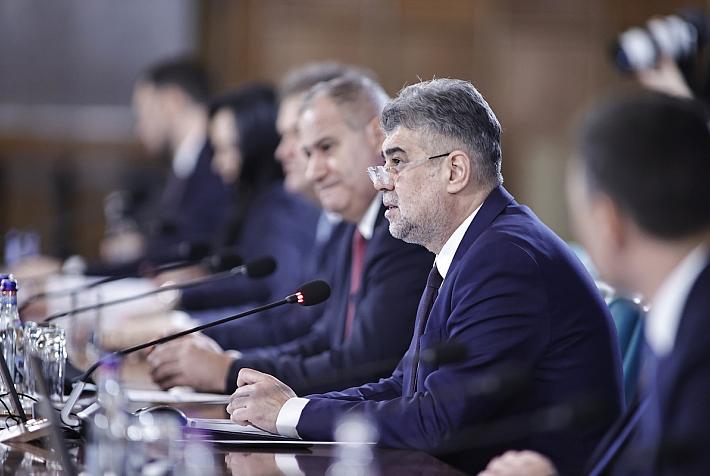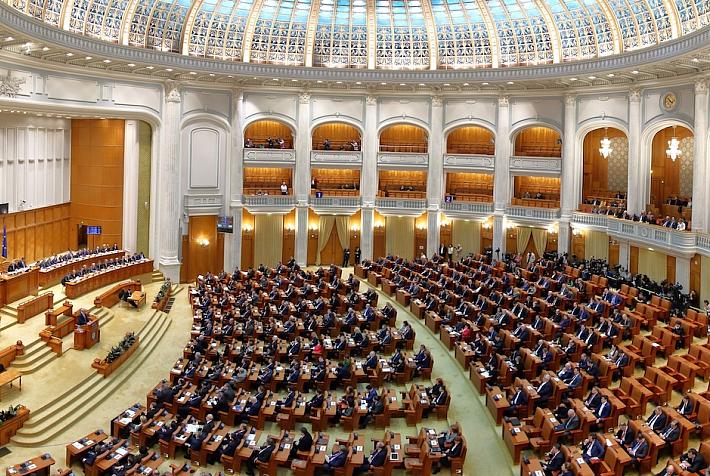AmCham: Announced fiscal changes affect the stability of the Romanian economy

The fiscal changes announced in the new governing program generate turmoil in the economic environment, according to the American Chamber of Commerce in Romania AmCham, one of the biggest business organizations representing foreign and local companies. They are seriously affecting the stability and confidence in the Romanian economy, which is already paying the price of political instability, the organization said.
The new governing program, which was announced on Thursday, June 30, includes several important changes such as replacing the tax on profit with the tax on turnover, and a solidarity tax for monthly salaries above RON 14,500 (EUR 3,200).
"Both the announced haste adoption, without consultations and impact assessments, and the potential economic impact of the proposed measures, reverse the country’s macroeconomic performance, and isolate Romanian from an investment perspective," reads the statement from AmCham.
Referring to the new tax on turnover, which should come into force starting January 1, 2018, AmCham considers that this is an “inappropriate measure that would make Romania the only European Union member state that would apply this type of taxation to all categories of taxpayers.”
Such a mechanism is generally applied as a tax simplification procedure for micro-enterprises and SMEs. Moreover, according to AmCham, the proposed measure contravenes to the Common Consolidated Corporate Tax Base (CCCTB), a new European directive in public debate, placing Romania outside the hard core of EU trends.
According to the new governing program, the Government plans to drop the current 16% tax on company profits and replace it with a tax on turnover starting January 1, 2018. This would be a major change in the state’s fiscal policy and, if implemented, will mean the end of the 16% flat tax introduced in 2005.
The Government also plans to introduce the global income tax for individuals, a measure AmCham says is not at all feasible at the moment, “given that the precarious situation of the tax agency ANAF’s IT infrastructure makes the implementation and applicability of this type of taxation impossible.”
“Any change of this scale involves lengthy preparations and large investments in IT infrastructure, education of specialists and all taxpayers,” reads the statement from AmCham.
On shifting the obligation of paying the social contributions from the employer to the employee, AmCham says that, at this time, such a measure leads to a lack of transparency and clarity for both categories of taxpayers. “Correlated with companies’ obligation to increase wages, such a measure has a financial impact that is difficult to estimate for both the employee and the employer.”
AmCham also criticized the new so-called solidarity tax, which will be paid by people who have monthly wages above RON 14,500. “The fact that it is in force only in a few European states without having the expected impact, speaks for itself about the efficiency of such a tax that would only introduce distortions in the fiscal management at the level of individuals,” AmCham said. Moreover, the taxpayers could start migrating towards countries with more favorable tax systems.
The business organization also referred to the now retracted announcement of the new Finance Minister on dropping the mandatory private pension funds. The minister retracted his statement the same day, saying that it was a confusion.
“This debut of the new Cabinet that, before effectively taking over its mandate, announces a series of the additional measures with a major economic impact, sends a wave of negative signals to the business community and potential investors,” said AmCham.
On Thursday evening, Romanian President Klaus Iohannis also asked the new Government to stop the "fiscal-budgetary hopping” and to honor all of the country’s commitments to international allies from EU and NATO.
Large companies in Romania rally against new governing program
Irina Marica, irina.marica@romania-insider.com












